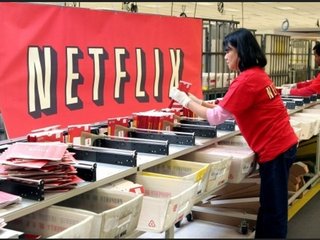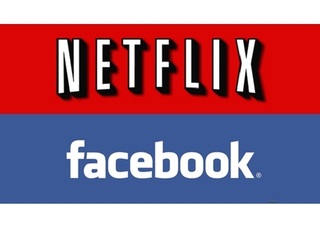
Senate to vote on allowing Netflix posts on Facebook
Considering changes to 1988 Act which protects video rental privacy

For all of us out there who love movies, and I don’t just mean big blockbusters but the weird and obscure stuff too, Netflix has been a godsend. It has given people access to movies that they would have no way of seeing otherwise, opening up a world of film to an entire generation.
If you’re a film lover then you know that there is no greater feeling than watching some little known movie and then telling all your friends about the amazing gem you just found. And yet, Netflix does not let you post what you’ve seen onto Facebook. I always wondered why that was; it seemed like such a missed opportunity.
Well, now I have my answer. And it seems as though the lack of Netflix on social networks is not for a lack of trying.
While Netflix can post on Facebook pages outside of the U.S., the reason that Netflix users are not allowed to post on Facebook in the United States is the 1988 Video Privacy Protection Act (VPPA), which was put in place to protect citizens from having their video rentals from being concealed.
The act stems from the grilling of Supreme Court nominee Robert Bork, whose video rentals were obtained during his confirmation hearing.
While digital rentals were not an issue in 1988, and are therefore not addressed in the bill, Netflix seems to have decided to play it safe, acting as though digital rentals do fall under the act.
There is good news though: they may not have to be so careful for much longer.
Democratic Senator Patrick Leahy, of Vermont, who wrote VPPA, has proposed an amendment to the Cybersecurity Act of 2012 that would allow for Netflix rentals to automatically be displayed on Facebook if the customer chooses to do so.
This is not the first time Congress has addressed this issue. Late last year, the House passed a bill that would have allowed Netflix users to automatically have their video history shared with their Facebook friends, but it has it failed to pass the Senate.
Ironically, Leahy was one of the members of the Senate who was adamently opposed to the bill, saying, "“[This is a case of] dominant corporate interests (enticing) a check off in order to receive what may seem like a fun new app or service... A one-time check off that has the effect of an all-time surrender of privacy does not seem to me the best course for consumers."
The amendment to the cybersecurity bill could be voted on next week.
Netflix formed its own Political Action Committee called FLIXPAC in April, and altering VPPA amendment has been one of its top priorities. According to The Hill, the company has spent a total of $395,000 on lobbying efforts in 2012 so far.
While Netflix certainly seems wary of violating VPPA, they have been accused of defying the law before.
Netflix was accused of violating VPPA earlier this year, when they settled a class action lawsuit against them for $9 million, agreeing to delete user data of their former customers at least one year after they cancelled their service.
Netflix could not be reached for comment
(Image source: blogs.investors.com)
Related News


Netflix stock plummets 25% after reporting fewer subs

Netflix to lose one million subscribers

